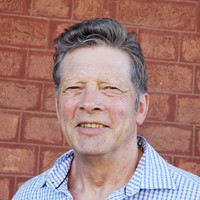Whenever I’ve tried to picture somebody in the time to come I’ve usually failed miserably, so much so that I’ve come to think that gazing into the seeds of time is definitely best left to the likes of Macbeth’s ‘weird sisters’ ! Some forty or so years ago I had misgivings concerning the direction in which a little boy seemed to be heading. Cloaked in my witchlike arrogance, I felt certain that his life’s course would not lead him to ‘success’. I was so wrong! That boy was Tony Archer, a product of our Catholic schools, having at various times attended St Joseph’s Primary, Toronto, St Pius X College, Adamstown and St Francis Xavier’s College, Hamilton. Here it is necessary to digress.
I recently picked up a book by Steve Cannane titled First Tests. To encapsulate briefly, its content consisted of a series of stories built around Cannane’s research into the childhood lives of a host of Australian test cricketers. What emerged was a fascinating similarity between their youthful cricketing experiences: all had played backyard cricket and that fact, the writer hypothesised, strongly influenced both their individuality and the sporting greatness which would follow. To give an example, Greg Chappell was noted as a batsman, remembered among other attributes for being able to play a shot off his hip so prolifically and yet, so unusually, that no other batsman seemed able to copy it. Cannane discovered that as a boy, Chappell, with his brothers, played in a cramped backyard in which there were two trees on the ‘leg side’. Greg spent countless hours flicking the ball through a gap between those trees, developing a shot that was to become one of his batting ‘signatures’. During his childhood he visualised himself as a test cricketer; this relentless play was the seminal stage of a dream.
Back to Tony, who is currently the National Rugby League’s director of referees. In his whistle-blowing career his achievements were outstanding and include 295 first grade matches, 13 State of Origin games and 10 internationals. He is arguably the most successful ‘man in the middle’ to have come from the Newcastle region. That aside, what fascinates me most is that his pathway towards high achievement bears striking similarities to Cannane’s discoveries.
As a youngster, Tony seemed constantly to be engaged in imaginative play. In the home this behaviour, which was to prove a critical factor in the development of his career, was indulged, particularly by his mother, Laura. From the age of five, often playing by himself, he turned the family backyard into his field of dreams. Rugby League was his favourite sport and he saw himself not as a player but as a referee. On a typical winter afternoon he would mark out the yard with string representing the dimensions of a football field and would blithely run around with a whistle ‘controlling’ invisible players. At half-time he would cut oranges for the ‘boys’ (needless to add for both sides!) – I recall this too clearly; not liking waste, I was one of those who had to eat the things! The fetish grew. At one stage he declared himself a Roosters supporter and, over several successive years, spent a night in early September underneath the dining-room table – camping out to secure tickets for the grand final, of course!
It was thought that as a seven year-old he had a reading problem – and he did, until someone put a rugby league magazine into his hands. This was something of interest to him – he read it aloud, unerringly, with fluency and much ‘colour’. Supposed problem non-existent! Nevertheless he was, in the estimation of many, a dreamer; an epithet that more often than not still carries negative connotations. Back then, he showed no apparent inclination towards scholarship; academic success was not Tony’s ‘go’ (though in later life he became a police prosecutor and is currently excelling in his almost-completed Commerce degree).
In Tony’s estimation, his greatest refereeing challenge occurred in 2003 when his coach at the time, a person whom Tony respects greatly, expressed openly extreme doubts about Tony’s capacity to officiate as a first-grade NRL referee. The dream and the hard practice had brought Tony to this precarious point where failure was looking him in the face. Tony’s response was to redouble his efforts! In his words, “This (coach’s assessment) challenged my self-belief, so I set about demonstrating (to him) an even greater level of dedication and worked harder than other referees in the squad.” Add here, force of will to ‘dream’ and ‘practise’. In 2007 Tony was selected (by that same coach) to control his initial first grade grand final, an appointment that Tony concedes marked his proudest on-field achievement. Of course, Tony’s family, wife Alison and daughters Kaylie, 15, Chloe, 9, and twins Ellie and Holly, 3, has been solidly behind his efforts throughout and rightly shares and delights in his success.
What I think I know now is that dreamers need the freedom to dream and that through play, some can visualise their future direction and that dreaming and self-knowledge are tightly linked. In Tony’s situation (and it was a crucial factor) his desire for success in his chosen direction became his passion and he pursued his dream single-mindedly. Today he is very surely ‘living the dream’.
It is very possible that all human strivings can be instructive. There are lessons that may be gleaned from Tony’s story in terms of his upbringing, his schooling and the roles that sport may play in people’s lives. For me, there are lessons transcending all these things: introspection can be a liberating process; freedom and a little creativity can create a clear understanding of one’s true individuality which can (along with focus and determination) be a key to helping dreams materialise. This could be a recipe for life well worth trying.




























































































